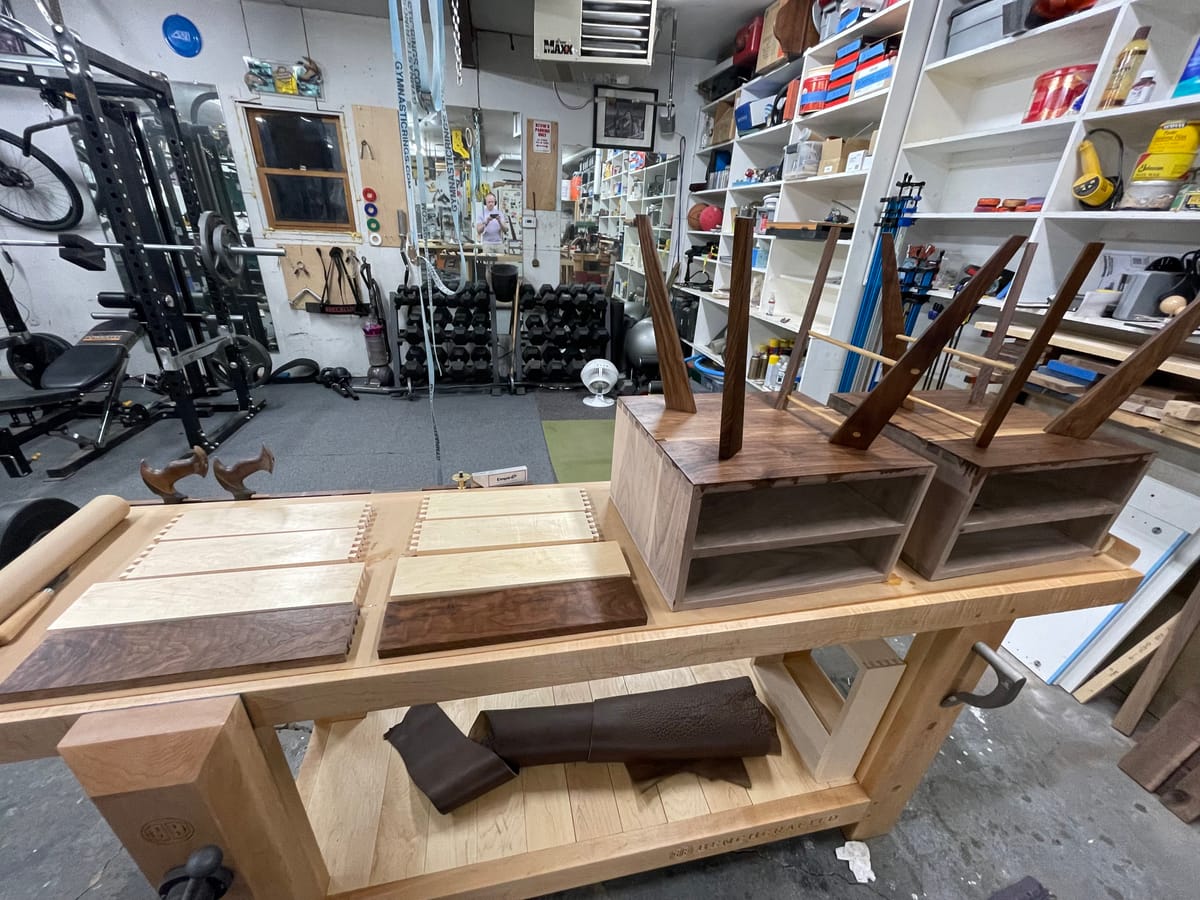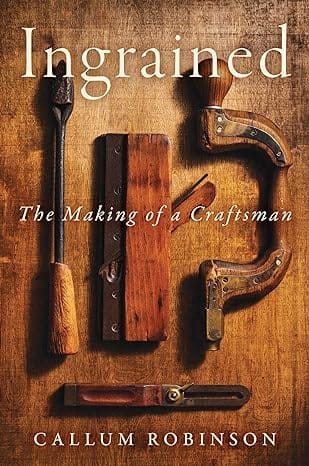Book Review - Ingrained: The Making of a Craftsman
From carpenters to chemists, memoirs of everyday work reveal why hands-on craft and meaningful labor matter more than ever in our modern world.

In an era where work is often reduced to dull LinkedIn headlines and “personal brand” posturing, it’s refreshing—and let’s face it, a tad enchanting—to return to the kind of labor that involves, you know, actually making stuff. Forget how-to guides and breezy self-help advice. There’s an emerging (and thoroughly satisfying) genre of memoir that invites us right into the workshop, the kitchen, or the driver’s seat, showing us the craft at hand, the sweat on the brow, and the deep well of meaning that lies beneath all those calluses.
A new entry into this tradition of “what people do all day” arrives through “Ingrained: The Making of a Craftsman,” by Callum Robinson. Robinson is a carpenter who grew up watching his father restore an old eighteenth-century farmhouse in the Scottish Lowlands. Instead of a childhood filled with tablets and TikTok dances, he got longbows, redwood swords, and pine catapults fashioned by hand. And unlike the mass-produced reality swirling around us, he learned to value the slow burn of creation and the raw truth of wood grain.
Robinson’s story combines nature writing, personal memoir, and a love letter to manual craft. He flits easily between the eerie stillness of Sitka spruce forests and the meticulous shaping of raw timber boards. He’s so attached to trees that he calls sycamores “ghostly” and likens oak to the stubbly face of a stubborn old man. He takes what many of us find at the local hardware store and transforms it into poetry.
But this isn’t just a romantic, rose-tinted ode to bygone crafts. Robinson and his wife run their own studio, grappling with the messy reality of modern commerce. They’re trying to secure clients, open a retail space, and impress an increasingly élite clientele who expect furniture to come with a backstory more dramatic than your average Netflix pilot. There’s something almost cinematic about the drama of losing a big corporate contract at the last second—while still needing to pay the bills, retain employees, and preserve the integrity of the craft.
Yet, Robinson’s world is less about the big twist in the third act and more about incremental mastery: discovering the perfect tension in a leather-backed chair, or embracing the nerve-wracking challenge of steam-bending wood into graceful curves. He reminds us that true craft is not about perfection at first pass but learning to predict, adjust, and even anticipate the quirks of natural materials over time.
In this sense, “Ingrained” and other memoirs like it push us to look more closely at our own work—be it carpentry or coding—and ask, “Is any of this meaningful?” It’s a question that’s becoming increasingly urgent as so many of us fight off existential dread while sitting (awkwardly) in ergonomic office chairs. The handcrafted table that holds generations of shared meals doesn’t just store memories; it grows them. Just as wood can record its environment in its rings, our labor imprints us, and we imprint it. We’re shaped by what we do as surely as we shape the raw materials in front of us.
What’s more, these books call on us to push back against the shallow promises of instant gratification and disposable products. They challenge us to value patience, long-term thinking, and authenticity. After all, hitting CTRL+Z in woodworking is a messy business—there’s no undo button for sawing too short. Instead, there’s just time, skill, and adaptation, and the rich satisfaction of learning from your own mistakes.
“Ingrained” might not give us sweeping economic analysis or neat political conclusions about the state of labor markets. Instead, it offers something equally valuable: a human-scale look at everyday work, brimming with personality and purpose. It’s about making something meaningful and knowing that, once you’ve invested your heart and your hands into a piece of wood, it can return that favor by telling its own story across decades—maybe centuries.

Ingrained: The Making of a Craftsman
The eldest son of a master woodworker, Callum Robinson spent his childhood surrounded by wood and trees, absorbing craft lessons in his father’s workshop. In time he became his father’s apprentice, helping to create exquisite bespoke objects. But eventually the need to find his own path led him to establish his own workshop and chase ever bigger and more commercial projects, until the devastating loss of one major job threatened to bring it all crashing down. Faced with the end of his business, his team, and everything he had worked so hard to build, he was forced to question what mattered most.
In beautifully wrought prose, Callum tells the story of returning to the workshop and to the wood, to handcrafting furniture for people who will love it and then pass it on to the next generation—an antidote to a culture where everything seems so easily disposable. As he does so, he brings us closer to nature and the physical act of creation—and we begin to understand how he has been shaped, as both a craftsman and a son.
Blending memoir and nature writing at its finest, Ingrained is an uplifting meditation on the challenges of working with your hands in our modern age, on community, consumerism, and the beauty of the natural world—one that asks us to see our local trees, and our own wooden objects, in a new and revelatory light.





